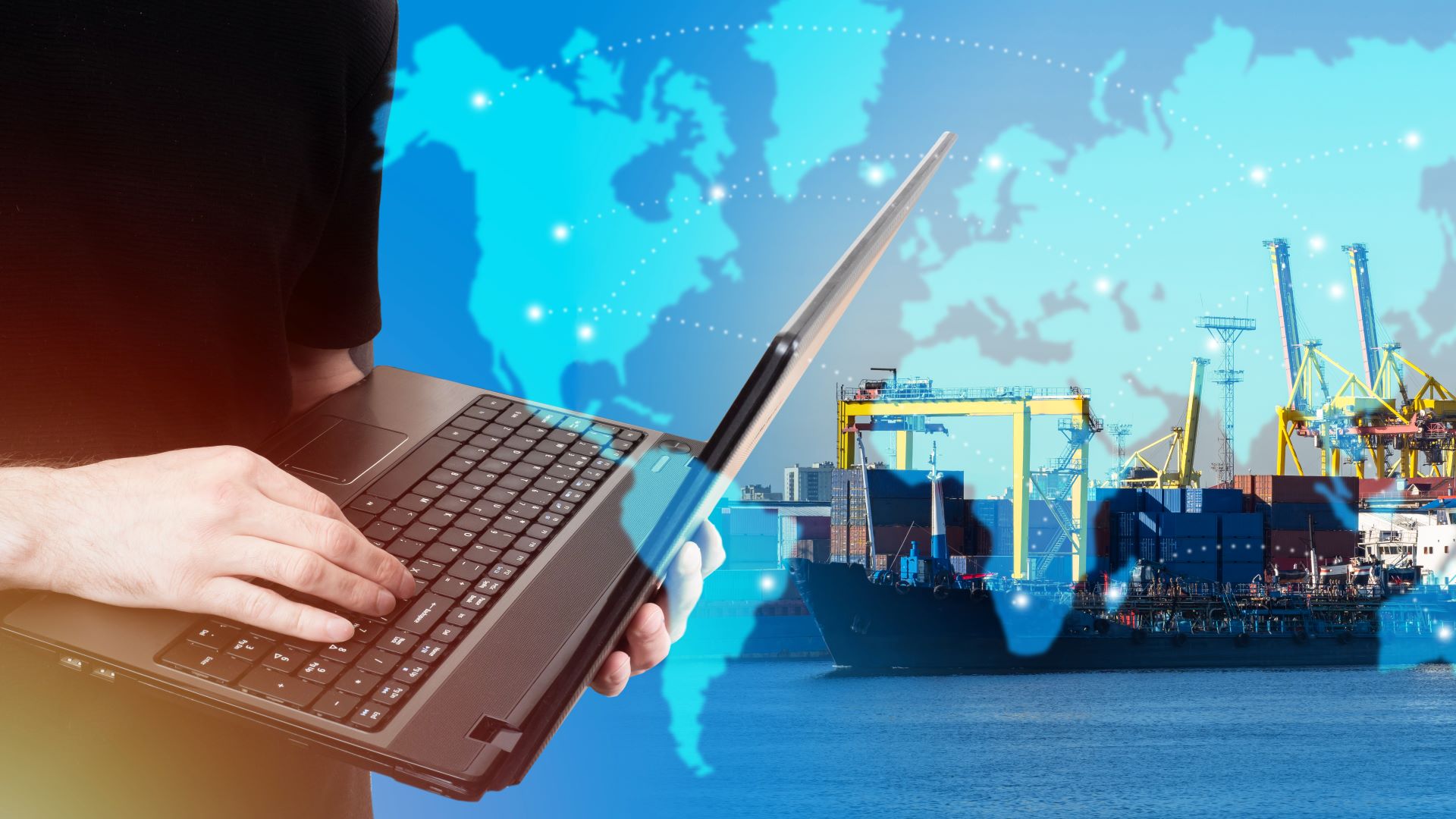The vast expanse of the world’s oceans has long been a realm of mystery and opportunity. Vessels of all sizes navigate these waters, connecting nations, transporting goods, and supporting various industries.
In this digital age, the union of Artificial Intelligence (AI) and vessel tracking, often called ‘ship tracker,’ is revolutionizing the maritime industry. This interplay between advanced technology and the high seas is profoundly shaping maritime’s future.
AI’s Transformative Role In Maritime Operations
The following explores AI’s diverse roles in shaping the future of maritime operations, from enhancing safety and security to advancing autonomous shipping.
- Enhancing Safety And Security
Safety at sea has always been a paramount concern. AI-driven ship trackers have brought about a significant improvement in this regard. These systems are equipped with sophisticated sensors and machine-learning algorithms that can detect anomalies in vessel behavior, such as sudden course deviations or unexpected stops. They can also monitor weather conditions, providing real-time information to help vessels avoid dangerous situations.
By continuously analyzing data from various sources, an AI-enhanced ship tracker enables early warning and proactive decision-making, ultimately reducing the risk of accidents and ensuring the safety of crew, cargo, and the environment.
- Optimizing Fleet Management
Efficient fleet management is essential for profitability in the maritime industry. AI-powered ship trackers provide invaluable insights into vessel performance and maintenance needs. By collecting data on engine efficiency, fuel consumption, and equipment health, these systems allow operators to optimize routes, reduce fuel costs, and extend the lifespan of their vessels.
Moreover, predictive maintenance algorithms can identify potential issues before they become critical, minimizing downtime and maximizing operational efficiency. In a competitive market, such optimizations can significantly affect a company’s bottom line.
- Streamlining Logistics And Supply Chain
The global supply chain relies heavily on maritime transportation, and delays or disruptions can have far-reaching consequences. AI-driven ship trackers play a pivotal role in streamlining logistics and ensuring the timely delivery of goods. By analyzing historical and real-time data on vessel movements, traffic patterns, and port congestion, these systems can provide accurate arrival times and suggest alternative routes in case of unforeseen obstacles. This information is invaluable for shippers, manufacturers, and retailers, allowing them to plan their operations better and reduce costly bottlenecks.
- Enhancing Environmental Sustainability
The maritime industry faces increasing pressure to reduce its environmental impact. AI and ship trackers contribute to these efforts by enabling more eco-friendly operations. Vessels can significantly lower their greenhouse gas emissions by optimizing routes and reducing fuel consumption.
Additionally, AI algorithms can help monitor compliance with environmental regulations, such as emissions caps and ballast water treatment requirements. This proactive approach to environmental responsibility is crucial for the industry’s long-term sustainability and alignment with global efforts to combat climate change.
- Combatting Maritime Piracy
Maritime piracy remains a persistent threat in some areas of the world. AI-driven ship trackers are aiding the fight against piracy by enhancing vessel security. These systems can detect suspicious activities, such as vessels deviating from established routes or loitering in high-risk areas. They can also provide real-time alerts to authorities and vessel operators, enabling swift responses to potential threats. By improving situational awareness and facilitating rapid communication, AI-based ship trackers are making it harder for pirates to operate with impunity.
- Advancing Autonomous Shipping
The concept of autonomous or uncrewed vessels has been a topic of increasing interest within the maritime industry. AI plays a pivotal role in making this vision a reality. Ship trackers, equipped with advanced machine learning and sensor technologies, are essential for the safe navigation and control of autonomous vessels.
These systems can continuously assess the maritime environment, make navigation decisions, and adapt to changing conditions. While fully autonomous shipping is still in its infancy, AI-driven ship trackers are paving the way for a future where crewless vessels become a viable and efficient option.
The Challenges Ahead: Navigating the Hurdles of AI-Driven Vessel Tracking
While AI-driven vessel tracking has ushered in a new era of safety, efficiency, and environmental responsibility in the maritime industry, it is not without its share of challenges. Several critical hurdles must be overcome to ensure the continued success and widespread adoption of these technologies.
- Data Privacy and Cybersecurity
At the forefront of challenges facing AI-driven vessel tracking is the issue of data privacy and cybersecurity. Vessel tracking systems accumulate sensitive information, including vessel positions, routes, cargo details, and crew information. Safeguarding this data from malicious actors, cyberattacks, and unauthorized access is paramount. Ensuring compliance with stringent data protection regulations is a growing concern for maritime stakeholders.
- Securing Data Transmission
One of the key vulnerabilities in vessel tracking systems lies in data transmission between vessels, shore-based facilities, and regulatory authorities. Cyberattacks targeting these data flows could compromise the integrity of maritime operations, leading to safety risks and economic losses. Robust encryption and cybersecurity protocols are imperative to thwart such threats and maintain the confidentiality and integrity of the data being exchanged.
- Interoperability and Standardization
The maritime industry comprises various vessels, operators, and technologies. Ensuring seamless communication and data sharing among these disparate elements is essential for deploying AI-driven vessel tracking systems effectively. There is a lack of standardized protocols and interoperability among different ship tracking systems. This fragmentation hampers the industry’s ability to harness these technologies’ potential fully.
- Harmonizing Data Formats
Different ship tracking systems often use proprietary data formats and communication protocols. This diversity can hinder the exchange of critical information between vessels, ports, and regulatory bodies. Standardization efforts are needed to establish common data formats and communication standards that enable interoperability and facilitate data sharing across the maritime ecosystem.
- Education and Training
The successful integration of AI and ship trackers into maritime operations depends on the skills and expertise of the professionals using these technologies. There is a pressing need for comprehensive education and training programs to ensure that maritime personnel, from ship captains to port operators, are proficient in using AI-driven vessel tracking systems.
- Bridging the Knowledge Gap
Many maritime professionals may need to be better-versed in AI technologies or the nuances of ship tracking systems. Bridging this knowledge gap is essential to maximize the benefits of these advanced tools. Training programs should cover the technical aspects of AI and the ethical and legal considerations associated with data collection, privacy, and cybersecurity.
- Promoting Adoption
Resistance to change can be a significant hurdle in adopting AI-driven technologies. Maritime organizations and regulatory bodies must actively promote the benefits of these systems and incentivize their use through training subsidies, certification programs, or regulatory mandates.
- Regulatory Frameworks
The rapid evolution of AI-driven vessel tracking has outpaced the development of comprehensive regulatory frameworks. As a result, there is a need for international and national bodies to establish clear guidelines and regulations governing the use of these technologies. This includes defining acceptable data usage practices, cybersecurity standards, and privacy protections.
- Ethical Considerations
AI systems can raise ethical questions, particularly when they are used to monitor vessels continuously. Balancing safety and security with individual privacy rights and concerns about surveillance is a complex challenge that requires careful deliberation and regulation.
Overcoming these hurdles will ensure the safe and efficient operation of AI-driven ship trackers and contribute to the maritime sector’s long-term sustainability and growth in an increasingly digital world.
Conclusion
The interplay of AI and vessel tracking is fundamentally reshaping the maritime industry. From enhancing safety and security to optimizing fleet management, streamlining logistics, and advancing environmental sustainability, the applications of AI in maritime are diverse and impactful. As technology evolves, the maritime industry is poised for a future where AI-driven ship trackers will play an increasingly central role in shaping how you navigate the world’s oceans. With suitable investments and collaborative efforts, you can look forward to a safer, more efficient, and environmentally responsible maritime industry in the years to come.







